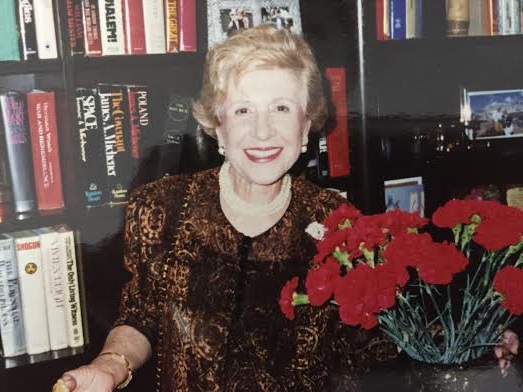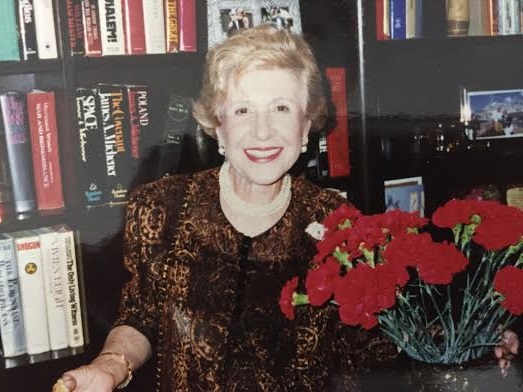 Throughout most of my childhood, I spent many holidays and vacations in Miami Beach with my great grandmother, Susan Rapaport a”h. When I was little, Grandma Susi was many things to me. She was the woman whose face lit up whenever
Throughout most of my childhood, I spent many holidays and vacations in Miami Beach with my great grandmother, Susan Rapaport a”h. When I was little, Grandma Susi was many things to me. She was the woman whose face lit up whenever
we came to see her, letting us know how special we were. She was the woman who told us to come right over when our flight landed in the middle of the night, so that she could cook us macaroni and cheese. And as I grew older, I realized there was much more. She was the woman who survived Auschwitz after her whole family was wiped out. She was the woman who came to America with my great grandfather, Leo Rapaport, and rebuilt her life from nothing. And before she passed away, she was the woman who told us, with incredible strength and pride, that she wanted the numbers tattooed on her arm to be written on her kever (grave).
My great grandmother was born in 1925, and grew up in Uyhel, Hungary. When her mother died, she took care of her family until she was deported to Auschwitz/Berkenau at the age of 18. She miraculously survived the Mengele selection, and was then part of the famous death march from Auschwitz to Bergen Belsen. From there, she was ultimately liberated; shortly after, she met her future husband, Leo Rapaport. After traveling around Europe in displaced person camps, they made it to America and began rebuilding their lives. They became one of the founding members of the Jewish community of Monsey, New York, before deciding to make aliyah. Their household was always open to anyone who needed a place to stay, and they hosted multitudes of prominent Jewish rabbanim and leaders.
My great grandmother refused to be fazed by any difficulty in her past or present life. Her positive outlook and faith in God were unwavering. She understood the importance of imparting to us the memories of her past, and making sure the world always remembered. It is not easy for a survivor to talk about the Holocaust, but my great grandmother was always willing to tell us about the experiences she had to live through. About 10 years before she passed away, my great grandmother decided to return to Auschwitz with her children and grandchildren. She fi rst brought them to the barrack where she slept, and then took them to the gas chambers. It was there when she first broke down in tears, saying
that this was the closest she would ever get to kivrei avot—visiting her parents’ graves.
With the passing of Elie Wiesel, I am reminded of how my living connections to the Holocaust are becoming fewer and fewer. Having prominent figures in my life that were living to bear witness was something that I used to take for granted. Now I realize that it is a privilege that will not last forever. Future generations will not be able to look into the eyes of a survivor and see the pain that they endured. They will not be able to hear from the lips of those who witnessed the atrocities themselves. They will not be able to visit my Grandma Susi and hear the stories of the survivors, and the memories of the lost.
These noble survivors will not be here to teach the next generations. We will need to take on an impossible task, as survivors’ descendants, to tell their stories, and write their books. We will need to share their pain, and cry their tears. It will be our responsibility to ensure that the torch of remembrance is passed on, and never burns out.
Rachel Retter is a summer intern at the Jewish Link and a rising senior at Manhattan High School for Girls.










